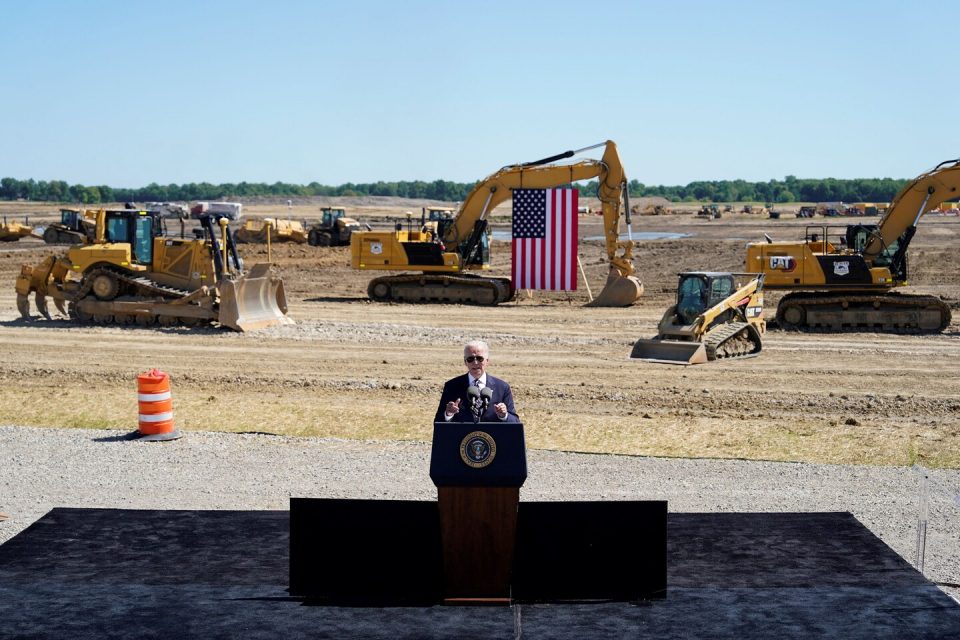The Intel manufacturing facility taking shape on a verdant plot of land outside Columbus is one of the most expensive and consequential investments in the United States in recent years – one offering enormous possible benefits for the economy, but also facing considerable challenges to reach fruition.
Billions of dollars of federal subsidies, approved in newly signed law, convinced California-headquartered Intel to proceed with the project, which aims to dramatically boost domestic manufacturing of the tiny components that power all modern electronics, from laptops to fighter jets.
But ramping up the vast manufacturing zone will take major effort, including consistent, years-long investment in the face of potential recessions and fickle Wall Street investors, and the training of thousands of engineers and technical workers amid a labor shortage.
In a speech, Biden said the project — and a flurry of other big semiconductor investment announcements — are an endorsement of his push to use $52 billion of taxpayer money to incentivize the reshoring of manufacturing deemed vital to U.S. economic and national security. The approach has won wide support from Republicans, too, who want to strengthen U.S. competitiveness versus China, which is pouring state funding into tech manufacturing.
“Federal investment attracts private investment. It creates jobs. It creates industries. It demonstrates that we’re all in this together,” Biden told a crowd of hundreds who gathered to watch the groundbreaking ceremony, including local officials, Ohio’s governor and senators, and engineering professors from across the Midwest.
“This is about our economic security. It’s about our national security. It’s about good paying union jobs you can raise a family on … jobs that show that the industrial Midwest is back,” Biden added during a ceremony featuring a gospel choir, Ohio State University’s marching band (“The Best Damn Band in the Land,” more than one speaker noted) and a panorama of dump trucks and diggers.
The federal subsidies, part of the Chips Act signed into law last month, is sparking a wave of chip investment. Micron is holding its own groundbreaking ceremony on Monday for a $15 billion chip factory near its headquarters in Boise, Idaho. Chip maker Wolfspeed on Friday announced plans to build a new manufacturing facility in Chatham County, North Carolina.
Taiwan’s TSMC, the world’s largest chip maker, has said it will seek subsidies for a $12 billion factory that it has begun building in Phoenix and is aiming to finish late next year.
And a partnership between SkyWater Technology and Purdue University says it will apply for federal subsidy to build a new $1.8 billion factory and research facility next to the university in West Lafayette, Ind.


